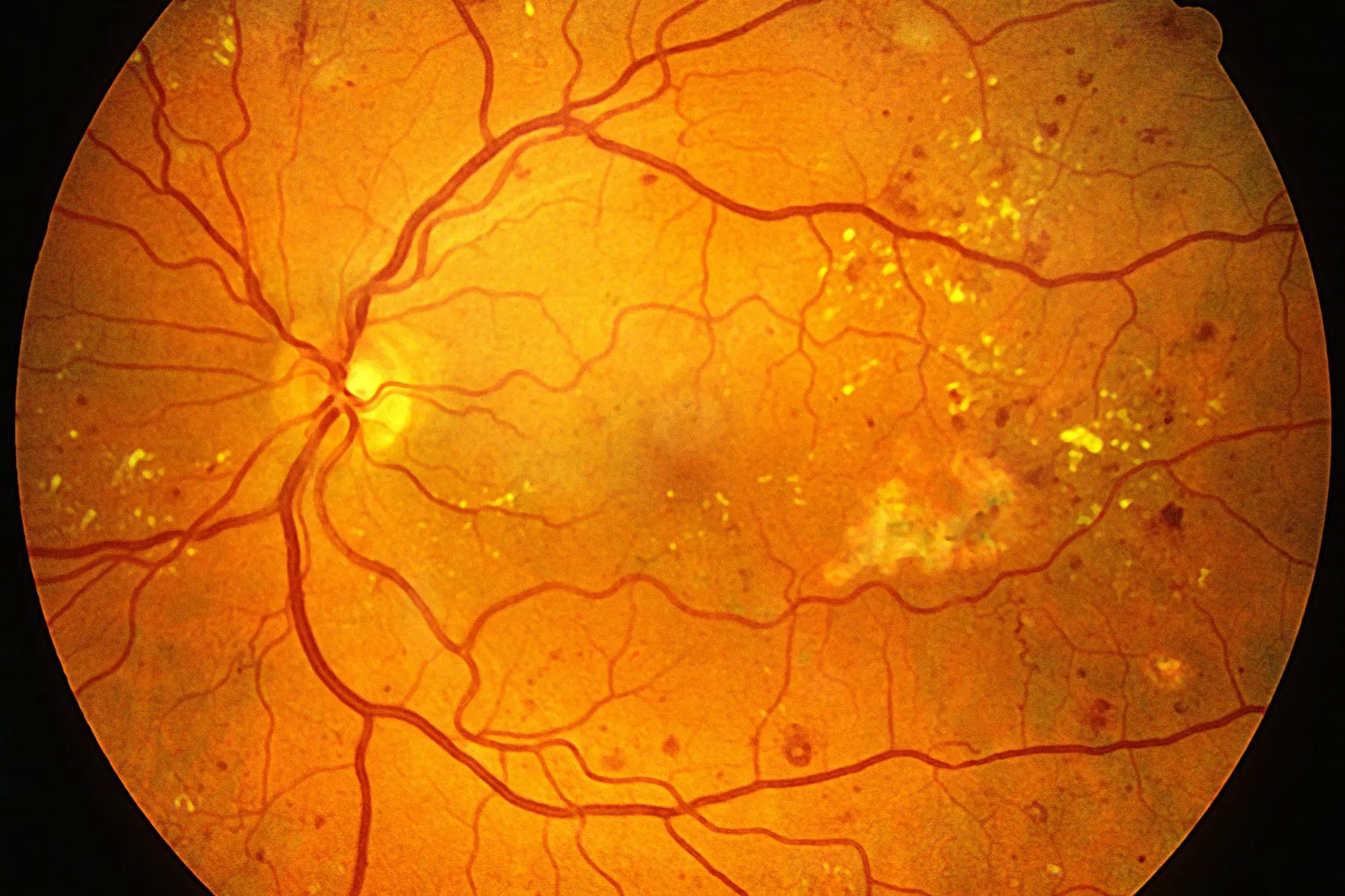Diabetes
Diabetic Retinopathy
Diabetes can cause the tiny blood vessels in the retina to swell and leak blood or fluid around the retina. As they heal scar tissue forms and can damage the retina so its function is less effective and consequently, vision is impaired. This disease process is known as diabetic retinopathy.
Non-proliferative diabetic retinopathy (NDPR)
This is the early stage of diabetic retinopathy. In this stage, the tiny blood vessels within the retina leak blood or fluid. The retina may have dot and blot haemorrhages, microaneurysms and exudates.
Proliferative diabetic retinopathy (PDR)
This is an advanced stage of diabetic retinopathy. In this stage, there is a widespread closure of retinal blood vessels (ischaemia) preventing adequate blood flow. The retina responds by growing abnormal blood vessels (neovascularisation) in an attempt to re-establish blood supply. These abnormal blood vessels are very fragile and often leak blood or fluid into the retina, resulting in severe vision loss.
Macular oedema, macula ischaemia, vitreous haemorrhage, traction retinal detachment and neovascular glaucoma are all possible conditions that can arise from diabetic retinopathy.
Diabetic Maculopathy
Who is at risk for Diabetic Retinopathy?
All people with Diabetes- both type 1 and type 2- are at risk. This is why everyone with diabetes should have a detailed eye exam at least once a year. More frequent eye checks are needed if you already have signs of retinopathy, poorly controlled diabetes, high blood pressure, or if you are pregnant.
What are the symptoms of Diabetic Retinopathy?
Symptoms include: Blurred vision, difficulty reading, floaters, and distorted (wavy) vision. Early detection of diabetic retinopathy is essential for the preservation of vision. It is possible that you may not be experiencing any symptoms yet still have early signs of retinopathy.
What is the treatment for Diabetic Retinopathy?
During the early stages of diabetic retinopathy, no medical treatment is needed other than more frequent eye checks. However, to prevent progression and vision loss, good control of blood sugar levels, blood pressure and blood cholesterol are essential. Regular exercise and a sensible diet are also required.
When there is more severe retinopathy or macula oedema (swelling), treatment with laser or injections into the eye is indicated. Your ophthalmologist will discuss these treatment options with you.
Download this information: Diabetic retinopathy (pdf)



